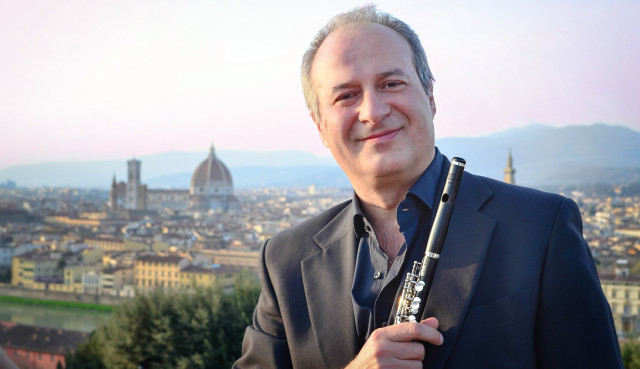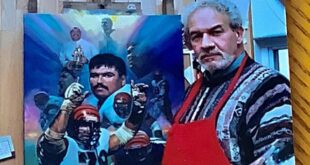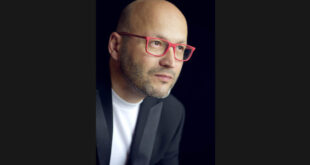by Florence Nelson
The piccolo used to be just a “little wooden flute” to most people. We heard it played in bands — especially in “The Stars and Stripes Forever” — and in an occasional Vivaldi concerto performance. That was about it. Composers used the piccolo to provide color in orchestral works — the way cooks spice up their sauces with garlic and pepper — but the instrument didn’t have much of a chance to shine on its own.
Then along came Nicola Mazzanti (piccoloflute.it). A 1982 graduate of the Conservatorio di Musica Luigi Cherubini in Florence, he studied flute with Sergio Giambi, Maxence Larrieu, Emmanuel Pahud, and Sir James Galway. (Lovers of classical music know these names well.) Mazzanti continued his studies toward a further degree in Music History with Honors from the University of Arts and Music while he taught flute and performed with orchestras throughout Italy. By 1988, he achieved the position of solo piccolo with the Orchestra del Maggio Musicale Fiorentino.
Ten years later Mazzanti decided that his role in music should be that of advocate for the piccolo as a solo voice. He continues to play the flute but mostly performs on the piccolo these days. He even stopped teaching the flute so he could focus on mentoring piccolo students, which he has done in Lucerne, at the Conservatorio della Svizzera Italiana di Lugano, the Conservatorio di Musica “Giuseppe Verdi” di Milano, and in Florence.
As a flutist and piccolo player myself, I found it surprising to hear that Nicola had the courage to focus solely on the piccolo.
He says, “I focus my activity on piccolo but I encourage my students to also focus on the flute. With good flexibility and intelligent work, they can play both the flute and the piccolo very well. Orchestral work and chamber music also help to keep us on track.”
Teaching piccolo is a complex art, says Nicola. Everything dealing with the piccolo is smaller than with the flute. Students can’t imitate a teacher’s face; they must learn to listen, use the bones and musculature in their neck and face, and discover what makes for their own best sound.
“Above all,” he says, “Consider the piccolo as a solo voice. It is not just another orchestral instrument. It can produce emotions and it can be communicative. Music and technique are strongly tied. The more control we have of the piccolo, the more our musical imagination and motivation to improve can be stimulated.”
For more on Mazzanti, visit piccoloflute.it.
For more on the Chicago Flute Club, visit chicagofluteclub.org.
Florence Nelson is a flutist and piccoloist who lives in Chicago. She played with the New York City Opera, substituted at the Metropolitan Opera, and freelanced with symphony, opera, and ballet ensembles in the New York area for 25 years. Later she served as International Secretary-Treasurer of the musicians’ union.
 Fra Noi Embrace Your Inner Italian
Fra Noi Embrace Your Inner Italian







